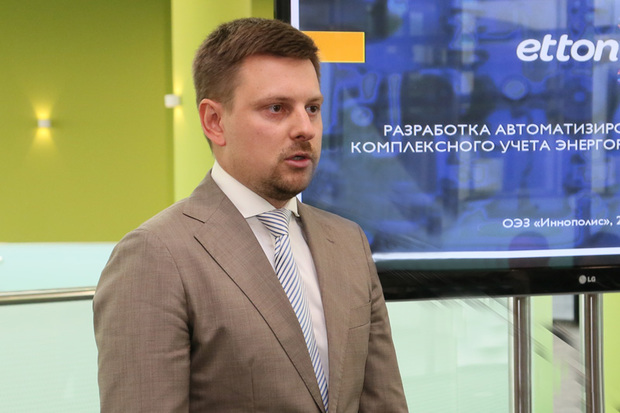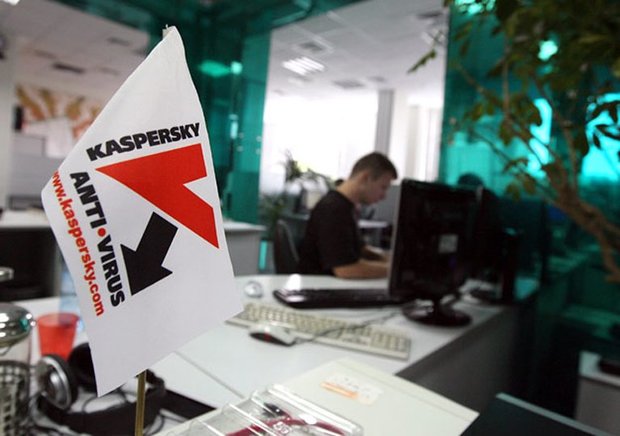''Ban of Vkontakte, Yandex and 1C is aimed to boost American and European companies in Ukrainian market''
Director general of Etton IT company from Kazan Yefim Klimov about the reasons and consequences of the work of Russian companies in Ukraine
On 16 May, Petro Poroshenko signed a decree on expansion of the list of sanctions against Russia. This time, apart from individuals like Kazan Helicopters director general Vadim Ligai and big Russian companies such as KAMAZ and Rostec, biggest IT companies have been included in the black list. For instance, such services as Yandex, Mail.ru, Vkontakte and Odnoklassniki, Kaspersky Laboratory, DrWeb and even 1C have been imposed sanctions. In an interview to Realnoe Vremya, director general of Etton IT company Yefim Klimov told how the sanctions will affect, first of all, users from Ukraine and his attitude to the urge of Mail.ru to skirt the bans.
''Those who used Vkontakte and Odnoklassniki and had a big and well-established base of friends will use alternative services''
How will the imposition of new sanctions affect Russian and Ukrainian developers?
I saw the list of banned organisations – they are big companies and social networks. Corporations are represented by 1C, Galaktika, INTALEV Ukraine – they also make ERP systems. The share of Ukrainian companies here is not very high. This is why I don't think it will affect the developers much. As for Ukrainian developers, it was claimed they will substitute these services without a problem and create their own software. They won't create social networks within a year, of course. In addition, it won't be in demand because people will actively start using all possible systems to skirt the bans. There has been created a great deal of such systems. This is why I think those who used Vkontakte and Odnoklassniki and had a big and well-established base of friends will use alternative services to reach their base. Ukraine won't create such services on its own.

''They maybe would ban but 1C will remain working. People will remain working on it. It will be installed on their computers locally. It is not a problem. It can be compared to a ban in Russia to purchase foreign-made software that, for instance, has an analogue''
Speaking of corporate services, people write that almost all business of Ukraine uses 1C. How will its ban affect the work? Are there any Ukrainian analogues of this service?
It is clear there is a ban. But one can't simply up and ban 1C like Vkontakte. Vkontakte is a cloud service. One can just close access to it. The dominating majority of 1C units is not connected with 1C cloud system. Only the latest 1C cloud accounting systems work completely on the Internet. Licence installed on a computer is the nucleus of the programme. This is why they maybe would ban but 1C will remain working. People will remain working on it. It will be installed on their computers locally. It is not a problem. It can be compared to a ban in Russia to purchase software of foreign origin that, for instance, has an analogue. If there is a Russian analogue and he chooses it, if not, the person will continue using American software.
Let's imagine 1C can anyway be banned. Will Ukrainian users have to use Oracle that is more expensive in all senses?
It is rubbish that is said in the official press release. Politics is politics. But it has become absurd. It is written they did it for cyber security and so on. But, in fact, it has nothing in common. Of course, it takes years, huge investments and state costs to create applied systematic software on their own.
They are going to get rid of Galaktika, ASKON, that is to say, software for making a design. As I understand, the entire machine engineering complex that left from the Soviet era is based on these design systems. They are likely to switch to American analogues. Figuratively speaking, Americans came there, and they show that they like them by all means. Considering the countries of the former socialistic bloc, I visited all these countries and know how IT is doing there. They are completely absorbed by North American companies. And there will be nothing Russian there ever, it is very difficult to expand there. In other words, system software, office software and applied software – they all will be American. The scenario used in the countries of the former socialistic camp is used. It is just done very clumsily by defaming the power in the eye of people, limiting the access to popular social services.

''They are going to get rid of Galaktika, ASKON, that is to say, software for making a design. As I understand, the entire machine engineering complex that left from the Soviet era is based on these design systems. They are likely to switch to American analogues.'' Photo: ascon.ru
''Everything needs to be done by civilised means''
Same Mail.ru urged Ukrainians to use their services to skirt the bans and explained that Ukraine accounts for a big share in the company's revenue but the ban will affect very local residents who use their social networks and services. What do you think about such calls?
I am not sure whether it is correct to make such statements. Probably it is not the opinion of all the company but that of its representatives. We just need to understand that in this case, a symmetrical reaction is possible. Let's imagine the reaction of the Russian government if there were services that closed because of cyber threats. There were created certain conditions and rules of the games that everybody obeyed — Google, Microsoft, Apple. They placed their servers in our country as it is done in civilised European countries. It is done for clear reasons.
But there are such companies as LinkedIn who understand that their business in Russia is small, and it is unreasonable to locate these services here for economic reasons. At the same time, LinkedIn doesn't shout that it was banned in Russia. Unclear users who had pages but made no money there shout about it. As the service was not developed here, it did not work as it should and was not monetised like in America. We have analogues – Avito, HeadHunter that just killed LinkedIn. It developed in America, there is real monetisation there. The company did not obey Russian law for pragmatic reasons. And no one of them argued. If they gathered a big number of critical users, they would say ''fine, we will place servers and maintain them, may LinkedIn continue working in Russia''. That's it. But again, everything needs to be done by civilised means. There is nothing good in skirting official limits. I don't support it.

''Anti-virus is a very complicated category. And it is impossible to create full-fledged anti-virus ''within a year''.'' Photo: vladtime.ru
As for anti-viruses like Kaspersky Laboratory and DrWeb. Is there any alternative in Ukraine? Or will American analogues substitute them?
They will buy American analogues, of course. Anti-virus is a very complicated category. And it is impossible to create full-fledged anti-virus ''within a year''.
I would also like to say that once we also faced some problems. We had a partner who appeared almost several months before the conflict with Ukraine. We planned to work together with this company. We offered our software to Ukrenergo, Kiev-electrosety. Of course, as soon as the conflict came about, we were driven out. When we entered Ukraine, European and American companies had already developed a lot as rival software. This is why the measures mentioned in Poroshenko's decree are aimed to boost American and European companies in Ukrainian market again.